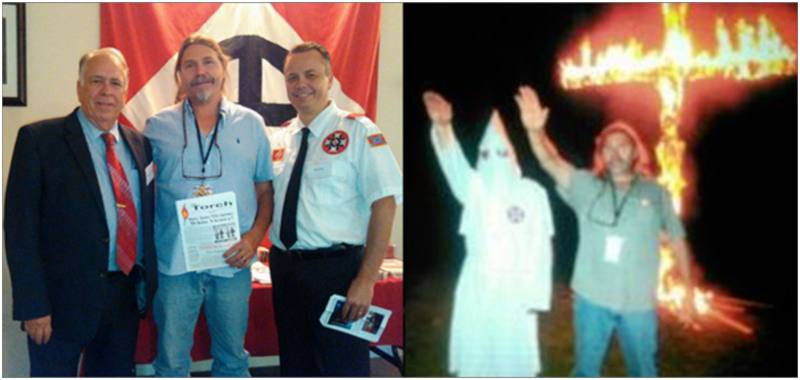A Missouri gubernatorial candidate with alleged ties to the Ku Klux Klan will remain on the Republican primary ballot, according to a ruling by Cole County Circuit Court Judge Cotton Walker on Friday.
The Missouri GOP had sought to remove Darrell McClanahan from the August primary, but Judge Walker denied the request, allowing McClanahan to continue his campaign against prominent Republicans, including Secretary of State Jay Ashcroft, Lt. Gov. Mike Kehoe, and state Sen. Bill Eigel.
McClanahan’s attorney, Dave Roland, argued that the ruling prevents party leaders from having “almost unlimited discretion to choose who’s going to be allowed on a primary ballot.”
He expressed concern that the GOP’s theory could have led to candidates being removed from ballots right before elections.
McClanahan, who has described himself as “pro-white” but denies being racist or antisemitic, was among nearly 280 Republican candidates who filed for office on Missouri’s filing day in February.
Despite the Missouri GOP initially accepting his party dues, the party distanced itself from McClanahan after a former state lawmaker posted photos on social media showing him making a Nazi salute.
McClanahan confirmed the authenticity of the photos to the St. Louis Post-Dispatch.

In his decision, Judge Walker noted that the Republican Party does not endorse McClanahan’s candidacy and remains free to publicly disavow him and his beliefs.
Roland suggested that the GOP’s lawsuit was more about making a public statement against racism and antisemitism than a genuine effort to remove McClanahan from the ballot.
Requests for comment from the Missouri GOP executive director and their lawyer were not immediately returned. Party lawyers previously stated that they were unaware of McClanahan’s background when he filed his candidacy in February.
McClanahan claimed that the Missouri GOP was aware of his beliefs, as he had run as a Republican for U.S. Senate in 2022. He has also filed a separate lawsuit against the Anti-Defamation League, accusing them of defamation for labeling him a white supremacist in an online post.
McClanahan described himself as a “Pro-White man” in the lawsuit and clarified that while he received an honorary one-year membership from the KKK, he is not an active member.
He also attended a “private religious Christian Identity Cross lighting ceremony,” which he claimed was mischaracterized as a cross burning.

